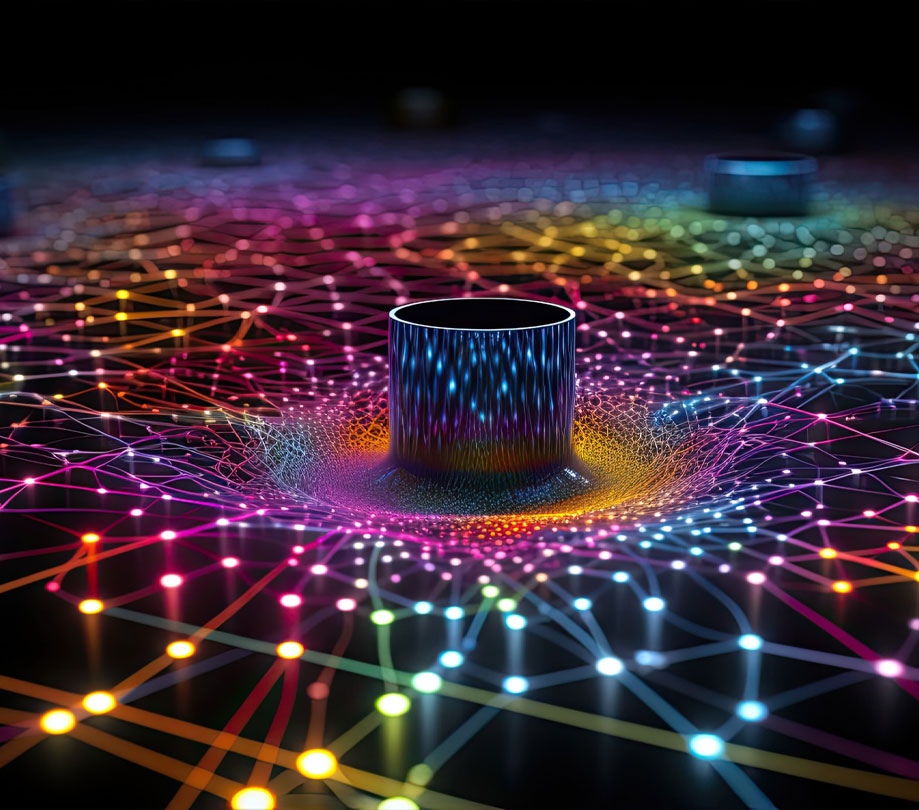Quantum Leap In Drug Discovery: D-Wave's AI And Quantum Computing Collaboration

Table of Contents
Accelerated Drug Design through Quantum Annealing
Quantum annealing is a type of quantum computation that leverages the principles of quantum mechanics to solve complex optimization problems far more efficiently than classical computers. In the context of drug discovery, this translates to significantly faster and more accurate molecular simulations. The advantages are numerous:
- Faster optimization of molecular structures: Quantum annealing allows for the rapid exploration of a vast chemical space to identify optimal molecular structures with desired properties.
- Improved prediction of drug efficacy and toxicity: By simulating interactions between drug molecules and biological targets, quantum annealing helps to predict the effectiveness and potential side effects of candidate drugs with greater accuracy.
- Exploration of larger chemical spaces: Classical computers struggle to handle the immense complexity of drug design problems. Quantum annealers, however, can efficiently search through significantly larger chemical spaces, identifying promising candidates that might be missed by traditional methods.
D-Wave's quantum annealers, with their unique architecture, are particularly well-suited for tackling these computationally intensive tasks. Their ability to explore multiple possibilities simultaneously provides a significant speed advantage over classical algorithms used in computational chemistry and molecular dynamics simulations. For example, quantum annealing can be used to optimize the binding affinity of a drug molecule to its target protein, a crucial aspect of drug design.
The Power of AI in Quantum Drug Discovery
The synergy between AI and quantum computing is propelling drug discovery forward at an unprecedented pace. Sophisticated AI algorithms, such as machine learning and deep learning, are integrated with D-Wave's quantum computers to enhance the drug development pipeline. This integration provides powerful capabilities:
- AI for data analysis of large molecular datasets: AI algorithms can analyze massive datasets of molecular structures and properties, identifying patterns and relationships that may be invisible to the human eye. This helps in prioritizing promising drug candidates.
- AI-guided optimization of quantum computations: AI can optimize the parameters of quantum computations, ensuring that the quantum annealer is used most efficiently. This improves the accuracy and speed of the simulations.
- AI for predicting drug interactions and side effects: AI models can leverage quantum-enhanced simulations to predict potential drug interactions and side effects, mitigating risks and accelerating the clinical trial process.
Specific AI techniques, such as Gaussian processes and reinforcement learning, are employed in conjunction with D-Wave’s quantum computers. This combined power allows for the development of predictive models with significantly improved accuracy and efficiency, reducing reliance on costly and time-consuming experimental validation.
Overcoming Challenges in Quantum Drug Discovery
While the potential of quantum computing in drug discovery is immense, significant challenges remain. These include:
- Noise in quantum computations: Quantum computers are susceptible to noise, which can affect the accuracy of their calculations.
- Limitations in current quantum hardware: Current quantum annealers are limited in terms of the size and complexity of problems they can handle.
- The need for specialized algorithms and expertise: Developing efficient quantum algorithms for drug discovery requires specialized expertise.
D-Wave and its collaborators are actively addressing these challenges. Ongoing research and development efforts focus on improving quantum hardware, developing more robust error correction techniques, and creating specialized algorithms optimized for the unique capabilities of quantum annealers. The field is rapidly evolving, and advancements in quantum software are steadily improving the usability and reliability of these powerful tools.
Real-World Applications and Case Studies
D-Wave's technology is already making a tangible impact on drug discovery. Several pharmaceutical companies are collaborating with D-Wave to apply quantum computing to their drug development pipelines. While specific details of ongoing projects may be confidential due to competitive reasons, we can highlight the potential impact with some general examples:
- Faster identification of lead compounds: Quantum annealing can significantly reduce the time required to identify promising drug candidates.
- Improved prediction of drug efficacy and safety: Quantum-enhanced simulations can provide more accurate predictions of a drug's effectiveness and potential side effects, leading to reduced risks and improved outcomes.
- Optimization of drug delivery systems: Quantum computing can help optimize the design of drug delivery systems, ensuring that the drug reaches its target effectively and safely.
Quantifiable results, such as a reduction in the time required to complete pre-clinical testing or an increase in the success rate of clinical trials, are emerging, demonstrating the transformative potential of this technology.
The Future of Drug Discovery with Quantum Computing and AI
The combination of D-Wave's quantum computing and AI is poised to revolutionize the pharmaceutical industry. By accelerating the drug discovery process, this technology promises to deliver new medicines more quickly and efficiently, ultimately improving patient outcomes. The future holds exciting possibilities, including the development of more targeted therapies, personalized medicine, and breakthroughs in the treatment of currently incurable diseases. Further research and development will focus on improving the scalability and accuracy of quantum computers, as well as developing new algorithms and applications.
To learn more about how D-Wave's quantum computing solutions are transforming drug discovery and explore potential collaborations, visit the . The future of drug discovery is quantum, and the time to explore its potential is now.

Featured Posts
-
 Lewis Hamilton And Ferrari A Heated Tea Break At The Miami Grand Prix
May 20, 2025
Lewis Hamilton And Ferrari A Heated Tea Break At The Miami Grand Prix
May 20, 2025 -
 Suki Waterhouses Style Secret A Small Town Designer
May 20, 2025
Suki Waterhouses Style Secret A Small Town Designer
May 20, 2025 -
 Pro D2 Colomiers Oyonnax Et Montauban Brive Apercu Des Rencontres
May 20, 2025
Pro D2 Colomiers Oyonnax Et Montauban Brive Apercu Des Rencontres
May 20, 2025 -
 La Visite Du President Mahama A Abidjan Perspectives Pour La Diplomatie Regionale
May 20, 2025
La Visite Du President Mahama A Abidjan Perspectives Pour La Diplomatie Regionale
May 20, 2025 -
 I Tzenifer Lorens Kai Koyki Maroni Deytero Paidi Gia To Zeygari
May 20, 2025
I Tzenifer Lorens Kai Koyki Maroni Deytero Paidi Gia To Zeygari
May 20, 2025
